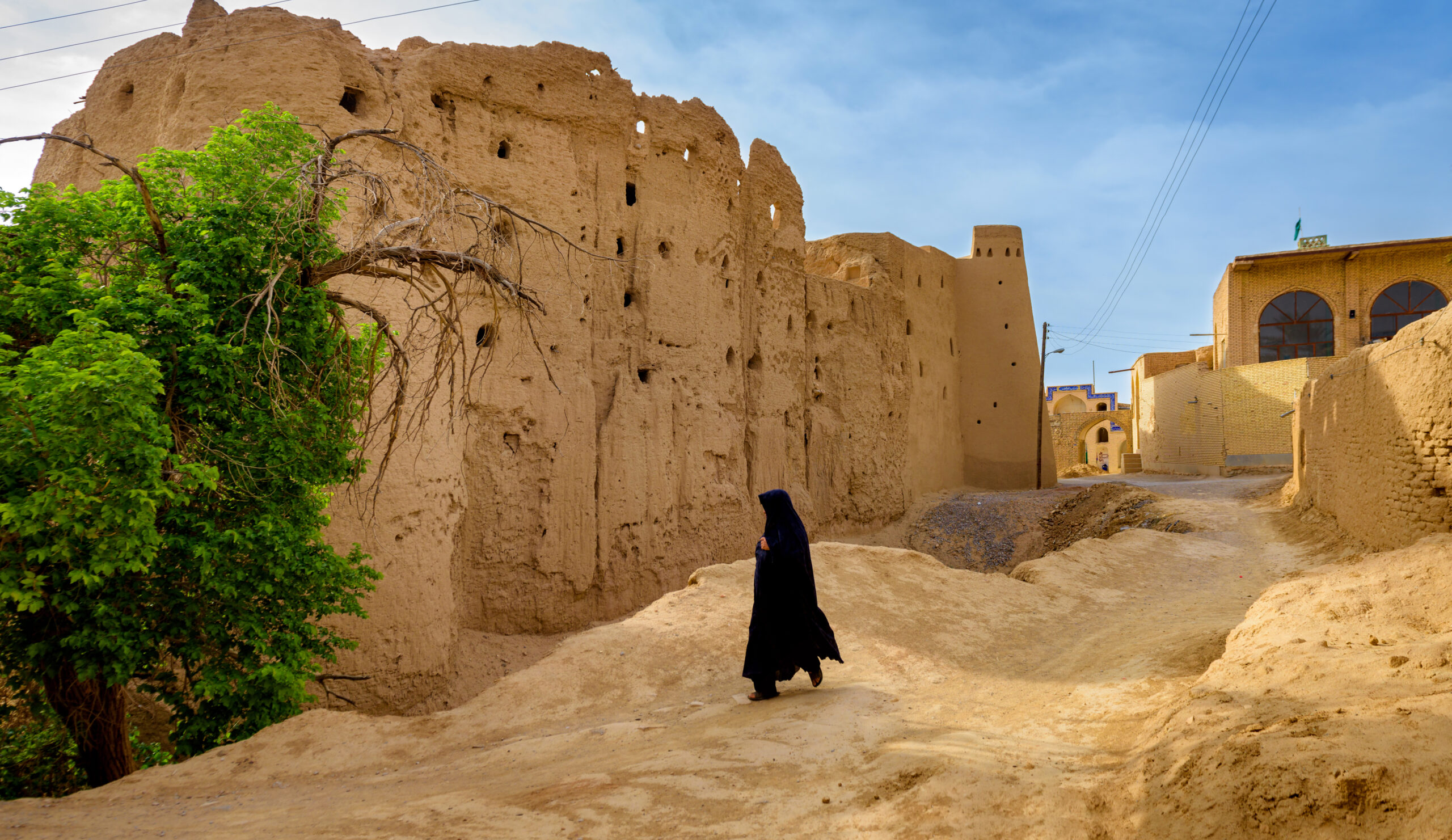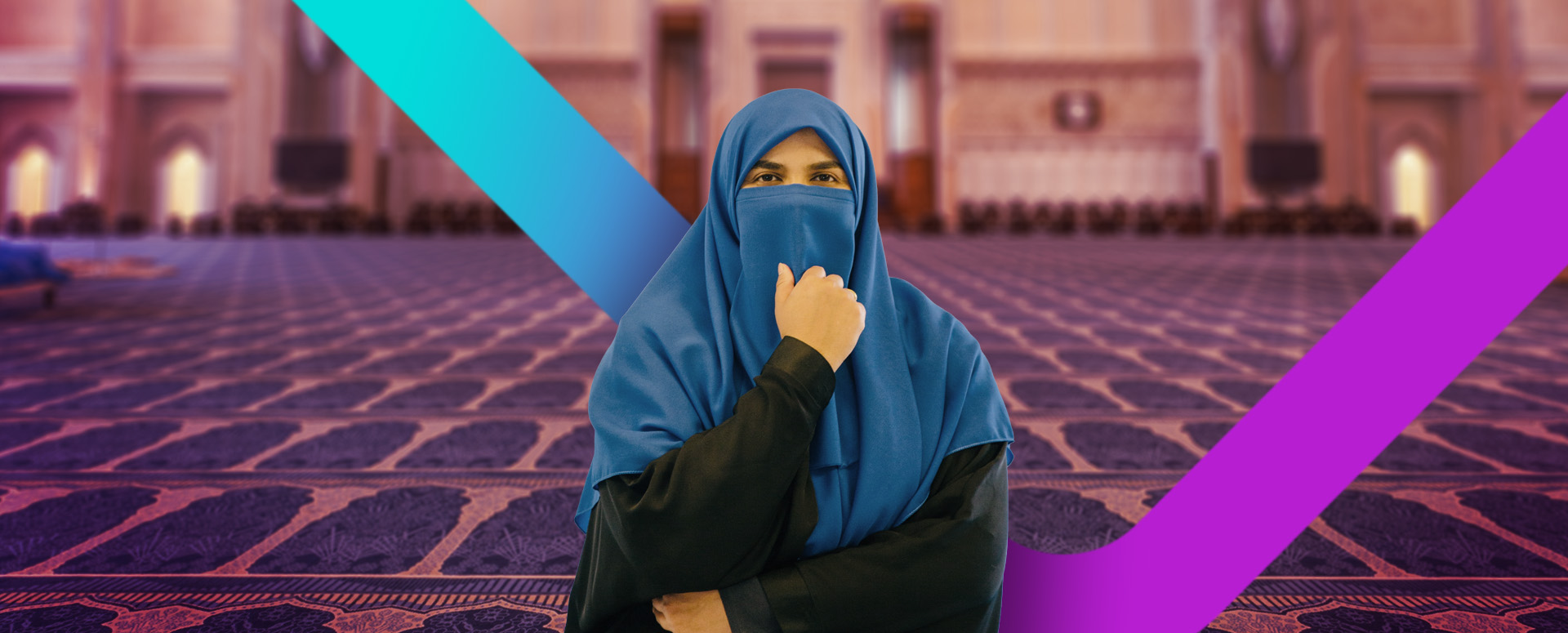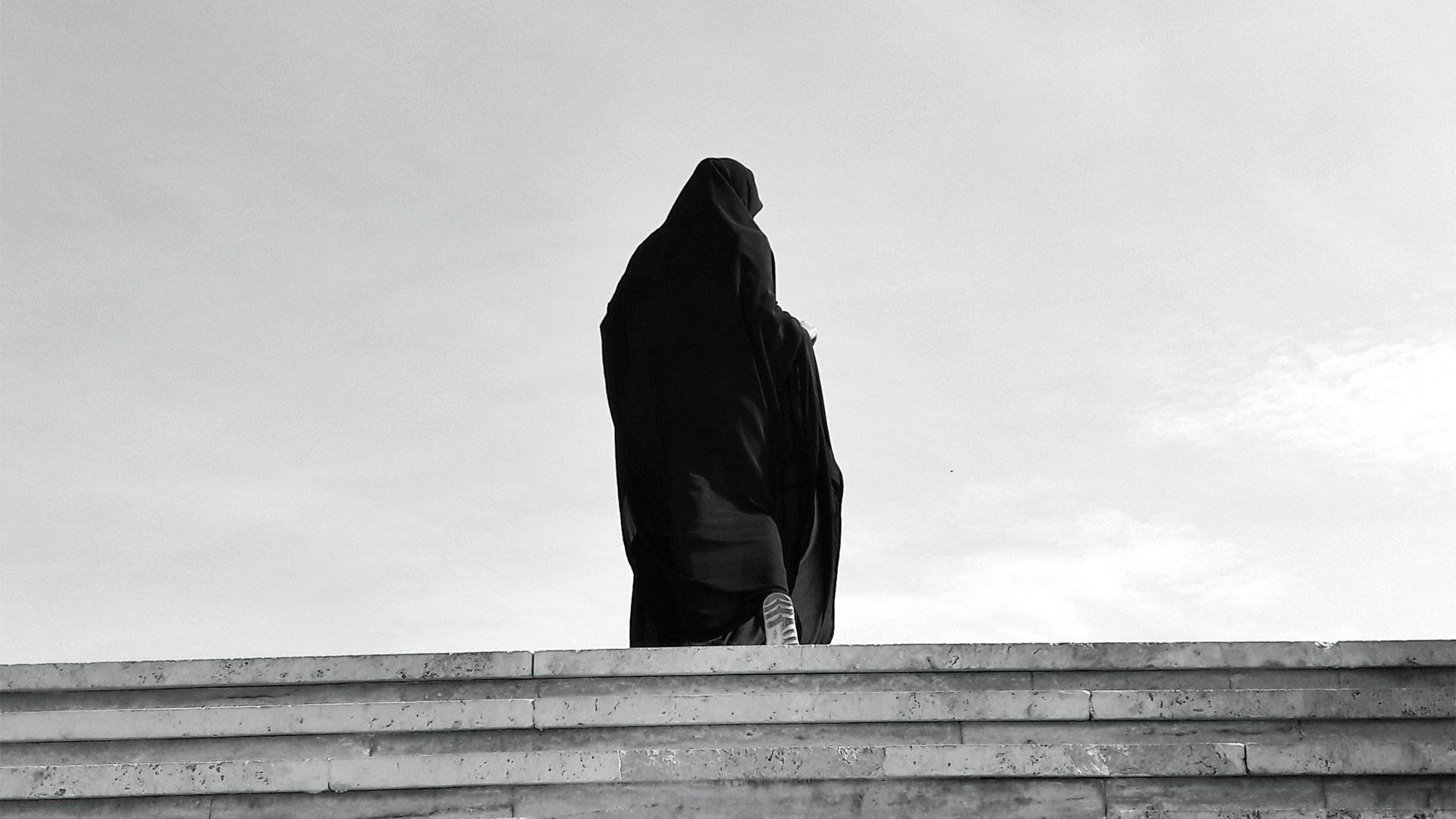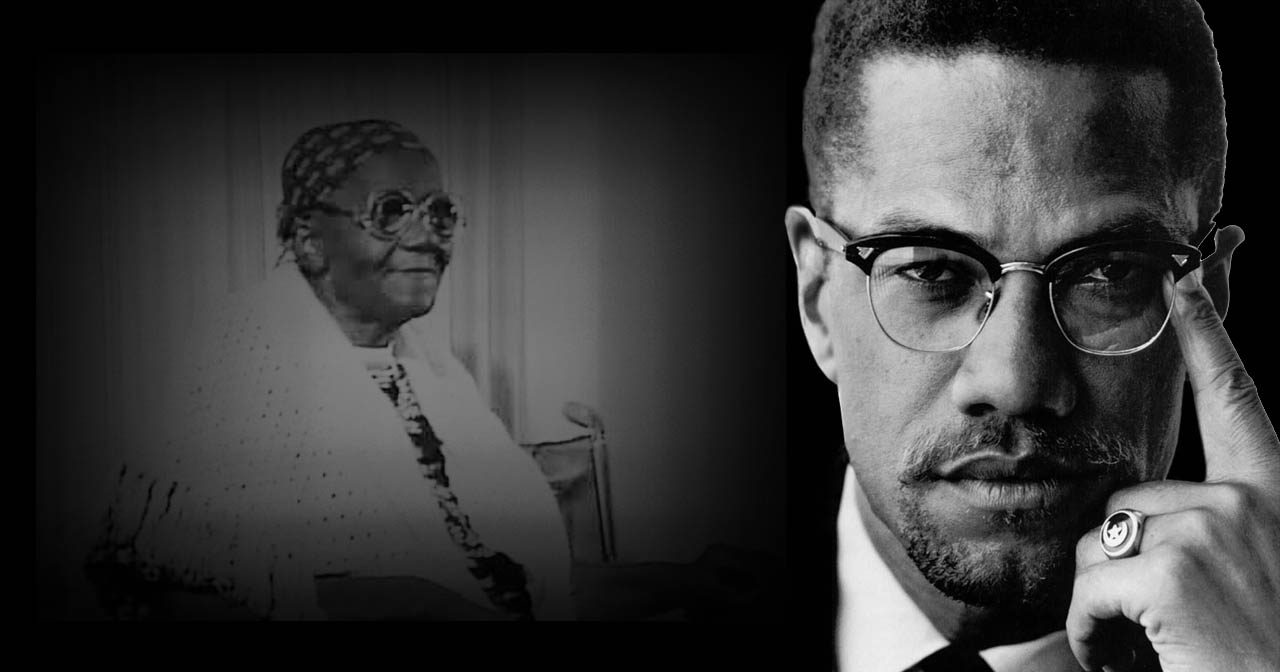
The Greatest Women who ever lived
10 min. read
Written by:
Fatima Barkatulla
Date:
25th October 2008
What are the most famous women of today celebrated for? Those held up as role models for the modern woman include actresses, singers, footballers WAGs (wives and girlfriends) and glamour models – all celebrated for their physical appeal. Very rarely will a woman be deemed ‘successful’ for other than what is really just superficial and then, as is often the case, when she ages and her physical features fade, she will fall out of favour with the media and younger women will replace her as the icons of their era. But Allah shows us in His Book that a woman is so much more than the outer shell that is her body. Our history is replete with examples of great women who were gems of their times and whose sparkling appeal is timeless. Islam demonstrates for us that the truly successful are those of integrity who fulfil the purpose of their creation and rise to the challenges that are presented to them throughout life with tenacity, thereby gaining the pleasure of their Creator and everlasting victory in the next life.
The Prophet Muhammad (sallallahu alaihi wa sallam) said in an authentic Hadeeth, ‘The best women from the people of Jannah are Khadijah bint Khuwaylid, Fatima daughter of Muhammad, Aasiya bint Muzaahim – the Wife of Pharoah and Mary daughter of Imran, may Allah be pleased with them all.[1] In fact Allah specifically mentions two of these great women in the Qur’an, as role models for believing men as well as women. In Surah at-Tahrim Allah says,
And Allah has set forth an example for those who believe: The wife of Pharaoh, when she said: “My Lord! Build for me a home with you in Paradise, and save me from the Pharaoh and his actions, and save me from the people who are oppressors. And Maryam, the daughter of Imran who guarded her chastity. And we breathed into the sleeve of her garment through our Ruh, and she testified to the truth of the words of her Lord and believed in His books and was of those who are obedient to Allah.
The Holy Qur’an, Surah at-Tahrim 66:11-12
So what were the characteristics that made them worthy of such accolade?
What made Allah and His Messenger single out these women above all others? And more importantly, how can we benefit and learn from their example?
They affirmed the Truth immediately
When they heard the truth, they submitted without hesitation. We see from their stories that Mariam accepted the huge task of going through pregnancy and childbirth by herself unsupported by a man, and then of presenting her child to the people who would inevitably accuse her of being a loose woman; something she was so far from being, she was obedient to Allah’s command. Khadijah accepted Islam immediately and was the first Muslimah. When the Prophet returned from Mount Noor having received the first revelation from Angel Jibreel, it was Khadijah who immediately accepted his message and believed in him even though he himself was shaken by the event.
Today, there is a culture amongst us of ‘Fatwa Shopping’. In other words, when an Islamic ruling makes us feel uncomfortable, instead of saying ‘We hear and we obey’, we just go and ask someone who has another opinion until we find the opinion that is most akin to our own desires. We must become women who when faced with the truth in any matter, sincerely accept it and submit without hesitation.
They had a strong relationship with Allah
Their knowledge of Allah and His attributes made them close to Him. When the Prophet returned from the Cave of Hira, fearing something bad had happened to him Khadijah knew Allah would never forsake him. She said, ‘Allah would never humiliate you, for you are good to your relatives, you are true to your word, you help those who are in need, you support the weak, you feed the guest and you answer the call of those who are in distress.’ She knew that Allah is Just and does not humiliate the righteous. Aasiya knew when Pharaoh was torturing her to turn her from her faith, that Allah could hear her cries and her du’a, she asked Allah to build for her, with Him a house in Paradise. During her ordeal, Allah showed her house in Paradise to her, which made her smile, just as she was martyred at the hands of her husband. Mariam had such a close relationship to her Lord that he would provide her with the fruits of the Summer in the Winter and the fruits of the Winter in Summer. When the Prophet Zakariyyah (AS) saw this he quizzed her about the origin of the food she always had. She said, “This is from Allah. Verily, Allah provides sustenance to whomsoever He wills without limit.”
If we are to become close to Allah we too must have correct knowledge of Him and His names and attributes and mention Him often through dhikr. If we remember Him much in times of ease, only then will we be able to remember Him in times of difficulty.
They had a Prophet as their Murabbi
A Murabbi is someone who teaches and nurtures you.
Mariam’s guardian in Masjid ul Aqsa was the Prophet Zakariyah. He was her Murabbi since her childhood as she lived in the Masjid. Aasiya had Musa growing up with her and accepted the message that he taught her, Khadijah and Fatima had the Prophet (sallallahu alaihi wa sallam) as their Murabbi and often, when Fatima found it hard to understand a particular situation that her father faced, he would teach her how she should view such a situation. He was continuously training her and giving her Tarbiyah. For example, one day when he returned from a journey and went to Fatima’s house, Fatima welcomed him and kissed his face, his mouth and his eyes and wept. ‘Why do you cry?’ the Prophet asked. ‘I see you, O Rasul Allah,’ she said, ‘Your colour is pale and sallow and your clothes have become worn and shabby.’ ‘O Fatima,’ the Prophet replied tenderly, ‘don’t cry for Allah has sent your father with a mission which He would cause to affect every house on the face of the earth whether it be in towns, villages or tents (in the desert) bringing either glory or humiliation until this mission is fulfilled just as night (inevitably) comes.’ He was constantly teaching her that there was more to this life than what was outwardly apparent and that the next life was the true one.
We must take the Prophet (sallallahu alaihi wa sallam) and his Sunnah as our guide through life as the Prophets were the ultimate Murabbis. It is not enough for us to read books and extract knowledge from them alone. We need tarbiyah from a scholar and from teachers who can guide us, as scholars are after all the inheritors of the Prophets.
They had Qunoot
Allah describes the True Believing women as being Qaanitaat and described Maryam in particular as having the characteristic of Qunoot. He says in Surah Aal Imran, Aayah 43,
O Maryam! Submit yourself with obedience (Uqnuti) to your Lord and prostrate yourself, and bow down along with those who bow down.
Qunoot means to stand for long periods in prayer and this was particularly a characteristic of Maryam and Fatima. Qunoot also means to be devoutly obedient and to submit to Allah.
We must become true worshippers of Allah, not only striving to establish our prayers, but striving to concentrate and to lengthen our prayers, in particular, the Night Prayer (tahajjud). We must have soft hearts that accept Allah’s commands and obey him with devotion.
They supported the Believing men in their lives
Aasiya saved the baby Musa from Pharaoh and brought him up & believed in him. Mariam was pivotal to the message of Eesa and she brought him to the people as a sign from Allah. Fatima defended her father when the idolaters in Makkah threw the blood and carcass of a dead camel on her father’s back while he prayed. She removed the filth and stood up to the men who had attacked her father, only to be slapped in the face by Abu Jahl.
Khadijah stood by the Prophet (saw) and spent her wealth for the sake of his message.
She endured the difficult boycott period when the Muslims and their supporters were forced to dwell in a valley away from the people of Makkah and were refused food or trade. The Muslims used to eat the leaves of the trees due to the extreme state of poverty they were in. Khadijah endured these hardships and stood by the Prophet (saw).
We must support our men folk and help them to be real men. We must stand by them in times of difficulty and strengthen them when they feel weak in their faith. It’s amazing the effect that a woman can have on a man’s self-esteem and confidence. Insha Allah, we will be rewarded for helping our men to be better servants of Allah.
They had Courage
Fatima was often seen in the wars that the Muslims fought, treating the wounded and stood up to Abu Jahl when he attacked the Prophet (saw). Mariam had the courage to bring Eesa to people after her difficult ordeal. She knew they would accuse her of being unchaste, yet she bravely obeyed Allah’s command. Khadijah had the courage to follow and encourage the Prophet (saw) in his mission even though she endured hardship due to it. Aasiyah courageously stood up to Pharaoh, the greatest tyrant of that time refusing to become a disbeliever.
We have to be prepared to do difficult things in our lives. We must have the courage to speak out to defend the oppressed and to tell people about our deen without watering it down and we must be prepared to sacrifice anything for the sake of the truth.
They had Istiqaamah and Sabr
Istiqamah means to stand firm upon the straight path and sabr is patient perseverance. In other words, they tenaciously held on to the truth come what may. Asiyah stayed firm upon the Deen of Musa throughout her torture and martyrdom. Mariam had sabr when facing her peoples’ accusations and stayed firm throughout the tests she faced. Khadijah and Fatima endured the three-year boycott that was imposed on them and went through the persecution of Makkah and kept their Imaan.
We live in a time when we need Istiqaamah. We need to stay true to the message of the Prophet Muhammad (saw) and not be tempted to dilute our Deen in order to appease other people. It will mean being patient and displeasing people sometimes, but ultimately we will have pleased Allah and he will give us success.
They had Tawakkul (Reliance Upon Allah)
When she was being persecuted for worshipping Allah, Aasiya’s reliance upon Allah made her stay firm upon Imaan and not yield under the intense pressure. Although Fatima faced poverty and physical hardship after her marriage to Ali to the point that her hands became rough and her face changed colour due to the physically demanding work she was doing, she was not allowed to receive Zakah and was not granted a servant when she wanted one. Instead the Prophet taught her and Ali to say Subhan Allah 33 times, Alhamdulillah 33 times and Allahu Akbar 34 times. He reminded them that Allah was the One who would make things easier for them so they should put all of their trust in Him. All four of the women persevered in the tests they faced due to their reliance upon Allah and knowledge that He would make their affairs right.
We must learn to truly have tawakkul in Allah and trust that after we have done our part, Allah will make everything turn out right as long as we are conscious of Him.
They had Zuhd (were not attached to the life of this world)
The Prophet (saw) once told Fatima to remove the gold bangles she was wearing as he wanted to teach her not to desire this life. She immediately removed the bangles and gave them away in charity. Khadijah spent her wealth in supporting the da’wah (call) during the Makkan period, she gave up her status as one of the most noble and esteemed women of the Quraysh in order to stand by the Prophet. Aasiya could have had a life of luxury as she was married to the richest and most powerful man in the world. She gave up the material delights she could have enjoyed if she complied with Pharaoh’s wishes. Yet she chose what was with Allah over this worldly life.
We must be willing to give up all we have for the sake of Allah. We must avoid joining in the race to have the best and latest commodities and realise that what is with Allah is so much more.
Let us follow in their footsteps and remember their example through the journey and trials of life.
[1] Related by Ahmad and declared ‘authentic’ by Sheikh al-Albaani in ‘Saheeh al-Jaami’”
FREE Webinar: Womanhood in the Qur’an
Join Ustadha Fatima Barkatulla & Umm Talha live every Wednesday at 7pm (UK) throughout February 2023 as she shares insights about inspirational women in the Qur’an and answers the question: What is the Qur’an’s vision for womanhood?
Register Now

